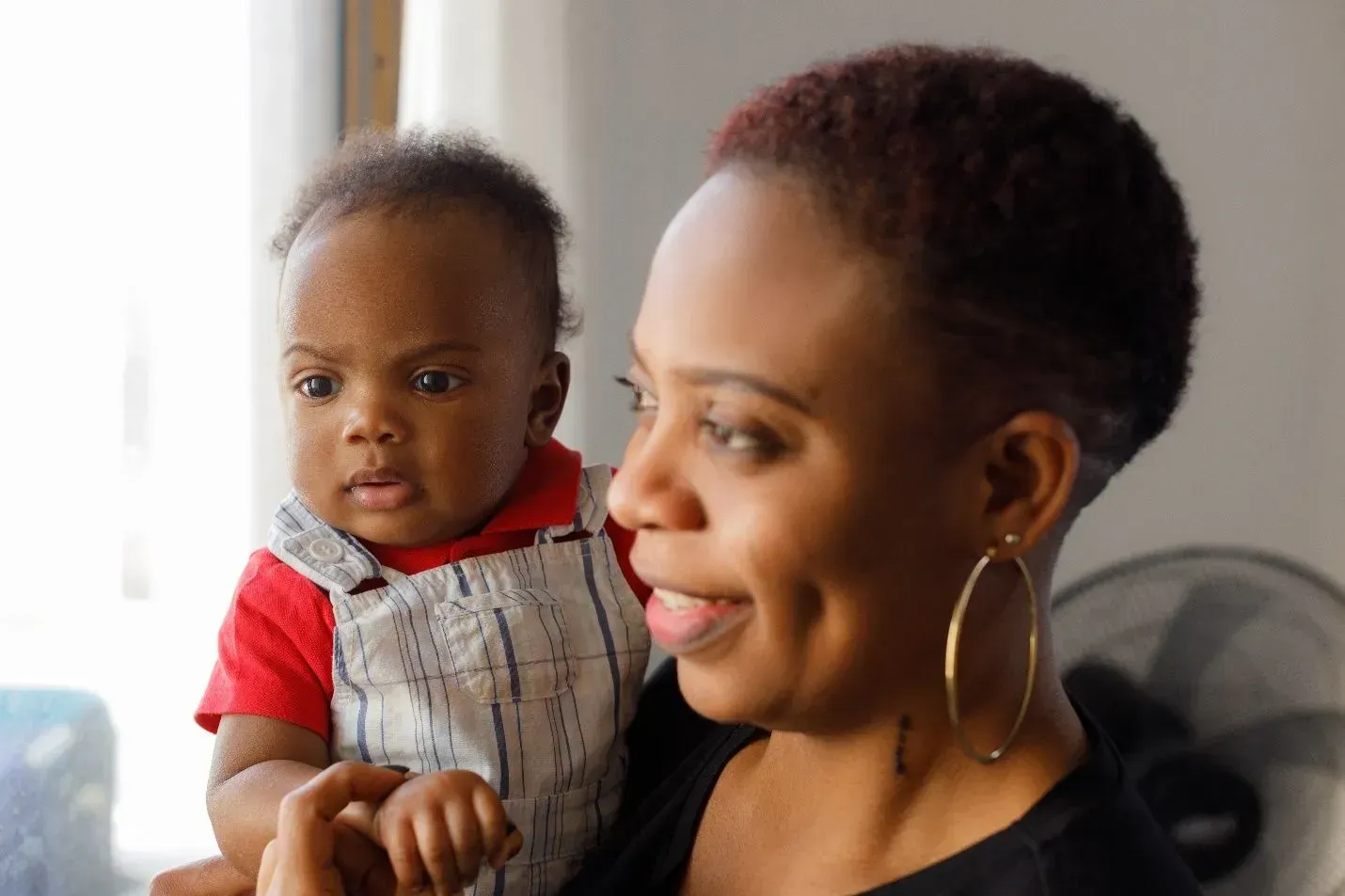PTSD Counseling Services Based in Jacksonville, FL
Living with post-traumatic stress disorder (PTSD) can make everyday life feel overwhelming, isolating, and filled with challenges. At River Shores Counseling in Jacksonville, FL, our compassionate team specializes in helping those affected by PTSD move beyond their trauma and toward a life of greater peace and resilience. With trauma-informed care and evidence-based practices, we’re here to guide you through the healing process so you can regain control and thrive.

What is PTSD?
PTSD is a mental health condition triggered by experiencing or witnessing a traumatic event, such as an accident, assault, or military combat. For those living with PTSD, symptoms can include the following:
- Intrusive Memories, Nightmares, or Flashbacks
- Avoidance of Reminders Related to the Trauma
- Adverse Changes in Mood and Self-Image
- Heightened Anxiety, Irritability, or Feelings of Shame and Guilt
These symptoms can affect your relationships, job, and overall well-being, but with the proper support, healing is possible.
How PTSD Counseling Helps
The journey of recovering from PTSD may feel daunting, but counseling offers proven methods and compassionate guidance for healing. At River Shores Counseling, we provide a safe, supportive environment where you can address trauma, work through difficult emotions, and develop the skills to move forward.
Benefits of PTSD Counseling
Processing Trauma in a Safe Environment
Through guided therapy, we help you explore and process your trauma in a way that is gentle and healing. Our therapists use trauma-informed approaches, ensuring every step of your journey is met with care and understanding.
Reducing Symptoms of Anxiety and Hypervigilance
Techniques like cognitive behavioral therapy (CBT) and eye movement desensitization and reprocessing (EMDR) are highly effective for treating PTSD. These therapies can help decrease feelings of anxiety, reduce flashbacks, and make it easier to cope with daily situations.
Regaining a Sense of Control and Stability
PTSD often leaves people feeling powerless or on edge. Counseling provides you with tools to regain control over your emotions, enabling you to handle triggers more confidently and create healthier daily routines.
Improving Relationships and Self-Worth
Trauma can affect how you view yourself and relate to others. By working through feelings of shame, guilt, or fear, PTSD counseling can help you strengthen relationships, restore self-esteem, and foster a renewed sense of purpose.
Our Approach to PTSD Counseling
At River Shores Counseling, we are committed to personalized care that respects each individual’s unique experience with trauma. Our therapists combine various trauma-informed practices to tailor a treatment plan that works for you. Whether through CBT, EMDR, mindfulness practices, or other therapeutic techniques, our goal is to help you feel safe, understood, and empowered in your healing journey.
Take the First Step Toward Healing
Starting therapy for PTSD is a courageous step toward reclaiming your life from the impact of trauma. At River Shores Counseling, we’re here to walk with you on this path, offering expert guidance and compassionate care at every step.
The invisible symptoms of PTSD and why you must take them seriously.

Some illnesses are easy to see with the naked eye, while others can sometimes fly under the radar. In either case, an illness is an illness that can sabotage the quality of your life if left untreated.
Post-traumatic stress disorder (PTSD) is one such condition that is invisible, insidious, and can be challenging to understand. But if you suffer from PTSD, it is vitally important to educate yourself about this very real condition and take the necessary measures to stop its damage from seeping into your life.
PTSD is a mental health problem you may develop after experiencing a traumatic event. Normally, you may see this term primarily associated with war veterans, but it is not only diagnosed in soldiers.

It can affect anyone who has gone through a life-threatening event such as an assault, car accident, natural disaster, sexual abuse, or even witnessed a traumatic event.
For someone suffering from post-traumatic stress, the memories or experiences of the event keep haunting them even long after the incident.
However, PTSD is treatable in most cases, and educating yourself about the condition can go a long way in improving your life. Identification of the problem is the first step toward the solution. Some signs of PTSD can be pretty obvious, while others may be hard to decipher. To help you better understand, let’s discuss some of the most common symptoms of PTSD.
- You have intrusive thoughts: You may have recurring disturbing thoughts, flashbacks, or visualizations of the incident and think about it even when you don’t want to. You may also experience a high frequency of disturbing dreams and nightmares related to that incident.
- Feeling as if you are reliving the incident: Even when you are completely safe, thoughts or mentions of the incident may make you feel extremely upset, and your body may psychologically and physically react as if you are going through the incident again.
- You ignore anything that triggers memories of the incident: You try your best to ignore talking about the incident; you change the subject or feel uneasy when something reminds you of it. You may even start ignoring activities or places where the trauma happened.
- You have a physical reaction to the memories of that incident: Other than psychological distress; you can experience increased heartbeat, elevated blood pressure, sweating, trouble breathing, muscle tension, or nausea when something reminds you of the traumatic event.
Other than symptoms related directly to the event, you may also experience some negative changes in your personality after going through the traumatic event. These include:
- Loss of interest in things you once enjoyed.
- Feeling emotionally numb and cut off and unable to rekindle the feelings of love and belonging with your loved ones.
- Being easily startled.
- Not being able to take things easy and always being on high alert.
- Having recurring anger outbursts and being irritable.
- Trouble falling asleep or staying asleep.
- Feeling as if your future will be cut short.

PTSD mentally disturbs the person and makes it hard for them to continue with their life in a normal way.
If any of these symptoms feel relatable, you must take it seriously as your job, relationships, health, and enjoyment of everyday activities suffer — PTSD causes havoc in almost all areas of your life if left untreated.
For an example, a person involved in a car crash or having a loved one die in a car crash might develop PTSD after it. Whenever they think about driving a car or traveling in it, they start feeling emotional disturbance thinking about the immense pain and fear they felt while they were in that car crash. They may feel as if it is going to happen again whenever they travel in a car. This fear might become so overwhelming for them that they may refuse to sit in a car or even go near it. This makes it hard for them to commute and leads to social issues where traveling in a car is required. If they do not know how to manage their anxiety or recurring thoughts of the crash, they may start suffering from an anxiety disorder or even go into depression. This may lead the person in question to start abusing drugs and so on. In this way, PTSD may make it hard for the person to live a normal life after the incident.
Similar is the case for people who have suffered from a natural disaster like a hurricane or tsunami, have been abused, or have gone through some other life-threatening trauma.

Fortunately, with the help of behavioral therapy and mental health counseling, you can regain control over your life, reduce symptoms and improve functioning.
Behavioral therapists and licensed mental health counselors help people deal with their PTSD by encouraging and assisting the patients in reconstructing their thinking patterns and resolving their irrational fears related to the incident.
A person suffering from PTSD has developed harmful thinking patterns that make it hard for them to move on. They overgeneralize bad outcomes, fall into the pitfalls of negative thinking, often have crippling irrational fears, and find it hard to think positively, which keeps them stuck in the same loop.
Attending regular counseling sessions can help someone suffering from PTSD develop more balanced and effective thinking. Trained therapists help the person reconceptualize their understanding of the traumatic experience, self-esteem, and ability to cope.
Controlled exposure to trauma and associated emotions helps the person develop confidence and slowly but surely reduce avoidance and maladaptive associations with the incident.
Behavioral therapy aims to use evidence-based techniques to help the person regain a sense of control, improve self-confidence, teach them healthy coping mechanisms, and reduce escape and avoidance behaviors.

If you have experienced a traumatic event in the past that mentally still hasn’t left you, and if you resonate with some/all of the symptoms mentioned above, then it’s a high chance that you have PTSD, and it is crucial that you do something about it.
Contacting a trained therapist and joining a behavioral therapy program may help you untangle a lot more than you think. It can turn out to be a small step that may lead to big changes by helping you process your trauma and get back to living a life you love.
Call (904) 737-3232 to schedule a consultation.
